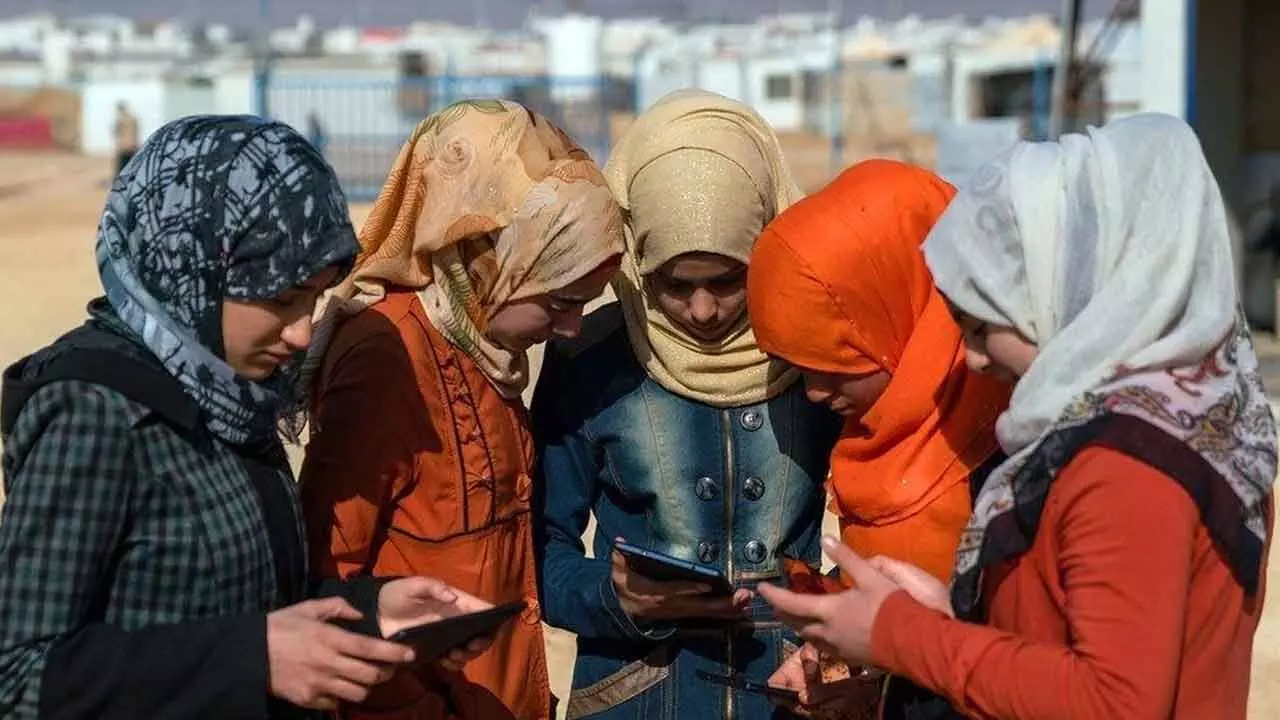Tech Needs Girls: Why Digital Inclusion Must Be Top Priority
As the world charges ahead with AI and digital innovation, millions of girls and women remain disconnected — not by choice, but by systemic exclusion
Tech Needs Girls: Why Digital Inclusion Must Be Top Priority

As transformative technologies such as Artificial Intelligence continue to reshape the global economy, millions of women and girls remain excluded from the digital world – denied not only access to opportunity but also the chance to shape their futures.
Closing this gap is not optional. There were 189 million fewer women than men online in 2024.
The disparity is about more than access, it reflects deeper systemic barriers, according to Doreen Bogdan-Martin who heads the UN telecommunications agency, ITU."That's too many missed opportunities to learn, to earn and to shape our shared digital future," she said in a message for the International Girls in ICT Day recently. She underscored that connectivity alone is not enough to ensure true digital transformation.
"It must be meaningful – being able to afford digital devices and services, having the skills to use technology, and feeling safe in online spaces. Everyone deserves the chance to thrive in an increasingly digital world."Celebrated annually on the fourth Thursday of April, Girls in ICT Day encourages girls to pursue careers in science, technology, engineering, and mathematics (STEM). Since its launch in 2011, more than 417,000 girls and young women have participated in over 11,500 celebrations across 175 countries. This year's theme is Girls in ICT for inclusive digital transformation. The ITU is calling for more investment in girls' digital education and expansion of access to technology. More young women need to become creators – not just consumers in the digital world, the agency argues.
"Whether you are an entrepreneur, launching an AI startup, a teacher incorporating digital skills into your classroom, or a policymaker shaping our shared digital future, you can help ensure every woman and girl has the chance to connect, create and lead in digital spaces," Bogdan-Martin emphasised.
The 2025 global observance will be co-hosted this year by the Commonwealth of Independent States (CIS) in Eurasia together with States from the Arab region, featuring a live-streamed hybrid event linking Bishkek, Kyrgyzstan and Nouakchott, Mauritania. The programme includes an intergenerational dialogue bringing together girls, women leaders, and ICT experts to discuss practical strategies for closing the gender gap. Worldwide only 30 per cent of tech science and technology professionals are women. And according to ITU's latest data, globally, just 57 per cent of women use the Internet, compared to 62 per cent of men. Furthermore, if women are unable to access the Internet and do not feel safe online, they are unable to develop the necessary digital skills and engage in digital spaces, which diminishes their opportunities to pursue careers in science, technology, engineering, and mathematics (STEM) related fields,
A recent study by UN Women and ITU shows that girls access digital technology at a later age than boys and that their use of this technology is more often curtailed by their parents. In addition, young women and girls are disproportionately exposed to online and ICT-facilitated violence and harassment, which can negatively impact their physical, mental, and emotional well-being, and influence how they access and use digital tools for the rest of their lives, UN Women added.
Built upon the idea that "every girl has the right to be connected and safe, and to play her part in shaping a more equal, green and tech-driven future", the UN Secretary-General has called for a global digital compact for improved digital cooperation.
The Generation Equality Action Coalition for Technology and Innovation for Gender Equality is bringing together governments, tech companies, the UN System, civil society organizations and young people, for a more equal and diverse digital transformation, including by preventing and eliminating online gender-based violence. (https://news.un.org/)
The global celebration and associated Girls in ICT Day events underline ITU's commitment to encourage girls and young women everywhere to consider pursuing STEM career paths. To date, over 600,000 girls and young women have taken part in more than 12,000 celebrations of Girls in ICT Day in 195 countries worldwide.
"All over the world, girls and young women want to join the digital revolution. When we remove barriers of access and safety, women and girls can make remarkable contributions to, and be empowered by, ICTs. To put it simply: tech needs girls, and girls need tech," said Doreen Bogdan-Martin, Director of ITU's Telecommunication Development Bureau. (https://news.un.org/)

